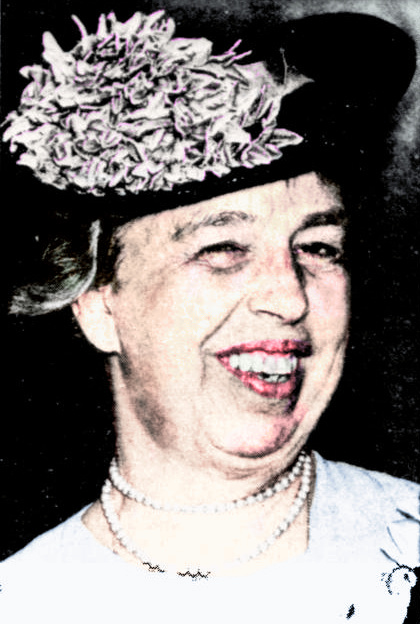
MY DAY
By Eleanor Roosevelt
June 1, 1940
New York, Friday –
I wonder if any of you have been fortunate enough to hear the Coronado Exposition radio program from 3:30 to 4:00, Eastern Daylight time, every Sunday afternoon? These programs give one an idea of what there is to see if one is able to visit the States of New Mexico and Arizona during the next few months. Two of the series have already been given and two more are coming in the next two weeks. The next one will particularly feature the Indians and what they have of interest to show this year at the Coronado Exposition, which opened in May and covers a variety of interesting places in New Mexico and Arizona.
While travelling to it, there are many other interesting things to see. For instance, the work being done by the Uplands Association in the Cumberland Mountains in Tennessee. The Uplands Hospital and Health Center was founded by Dr. May Cravath Wharton to try to give adequate medical care to the people of these mountain regions, who are so often ill largely because of chronic undernourishment and lack of opportunity for any medical advice and care. The staff goes out from this hospital and covers 600 miles of rugged mountainous country. It extends its service through this area by holding mother and baby clinics and regular clinics in the most isolated sections.
The hospital itself now has 50 beds and owns 230 acres of land. Tuberculosis takes a heavy toll in Tennessee because, wherever it occurs, the whole family is exposed to the disease. Hookworm and pellagra are widespread, typhoid and colitis are common ailments, and pneumonia and influenza epidemics rage during the winter months. The work done in this area is for people who are the descendants of fine old American stock, but who suffer because of the isolation of their surroundings and from ignorance, sickness and poverty.
The rain is coming down in torrents and I think April showers have extended themselves all through May. Instead of sun and warmth, I feel as though it were the month of November! Luckily, our morning is fairly free, with one appointment and a luncheon engagement with Mrs. William Randolph Hearst, before going to see the exhibition of costumes at Wanamakers which is being given for the benefit of the children’s milk fund in which Mrs. Hearst has long been the moving spirit. Then we start for Asbury Park, NJ, where I lecture tonight, and we shall have the pleasure of dining with Mrs. Lewis Thompson beforehand. After the lecture is over, we shall motor back to New York City.